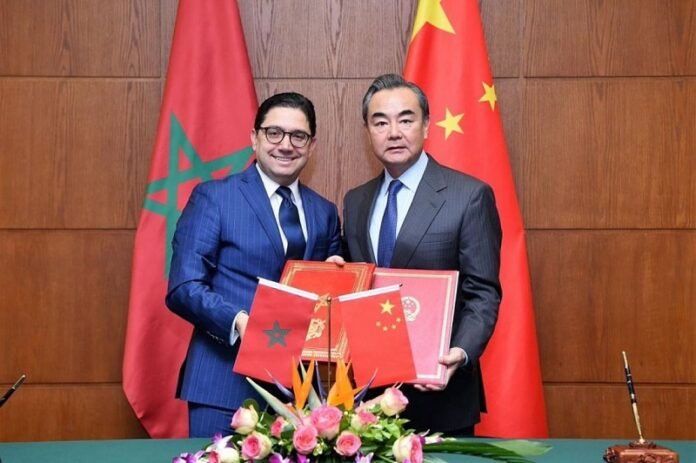Nasser Bourita, Morocco’s Minister of Foreign Affairs, African Cooperation, and Moroccans Abroad, is scheduled to make an official visit to China on September 19–20, 2025, at the invitation of Wang Yi, Chinese Foreign Minister and member of the Political Bureau of the Communist Party of China’s Central Committee. This visit comes at a sensitive time, not only for bilateral relations but also in the context of upcoming international milestones, particularly the UN Security Council meeting in October, which will discuss the Sahara issue.
The visit underscores the ongoing dynamism of Sino-Moroccan relations, which have been consolidated since the announcement of the strategic partnership during King Mohammed VI’s visit to Beijing in May 2016. Since then, economic and political relations have strengthened, moving beyond traditional dimensions to include modern technologies, renewable energy, infrastructure, as well as cultural and political cooperation on the international stage.
Official data indicate that trade between the two countries reached approximately 60 billion dirhams from January to July 2025, representing a 19% increase compared to the same period last year. This notable growth raises a key question: to what extent do these figures reflect China’s growing confidence in the Moroccan market, and what concrete projects underpin these numbers, signaling Beijing’s intention to view Morocco as a strategic gateway to Africa?
Furthermore, China has established itself as the third-largest foreign investor in Morocco, with net direct investments exceeding 2 billion USD in 2024. These figures, while significant, present a diplomatic and strategic challenge for Morocco: how can the Kingdom attract substantial Chinese investment while safeguarding national interests in sensitive sectors, without undermining traditional partnerships with Western powers?
Bourita’s visit comes at a time when the Sahara dossier is undergoing complex international developments, with China being a permanent member of the UN Security Council alongside the United States, the United Kingdom, France, and Russia. This status provides a strategic opportunity for Morocco to reaffirm confidence in its position and explore Chinese support, direct or indirect, on regional and international issues.
The central question remains: is this visit merely an exhibition of economic successes, or is it an effort to redraw the diplomatic alliance map around Morocco’s strategic stakes in Africa, positioning China as a balanced partner that respects Moroccan interests and strengthens its international presence?
In conclusion, Sino-Moroccan relations exemplify diplomacy based on shared interests, where economic stakes intersect with political and cultural dimensions, forming a dynamic alliance capable of positioning Morocco at the center of regional and international strategies for the coming decade.


